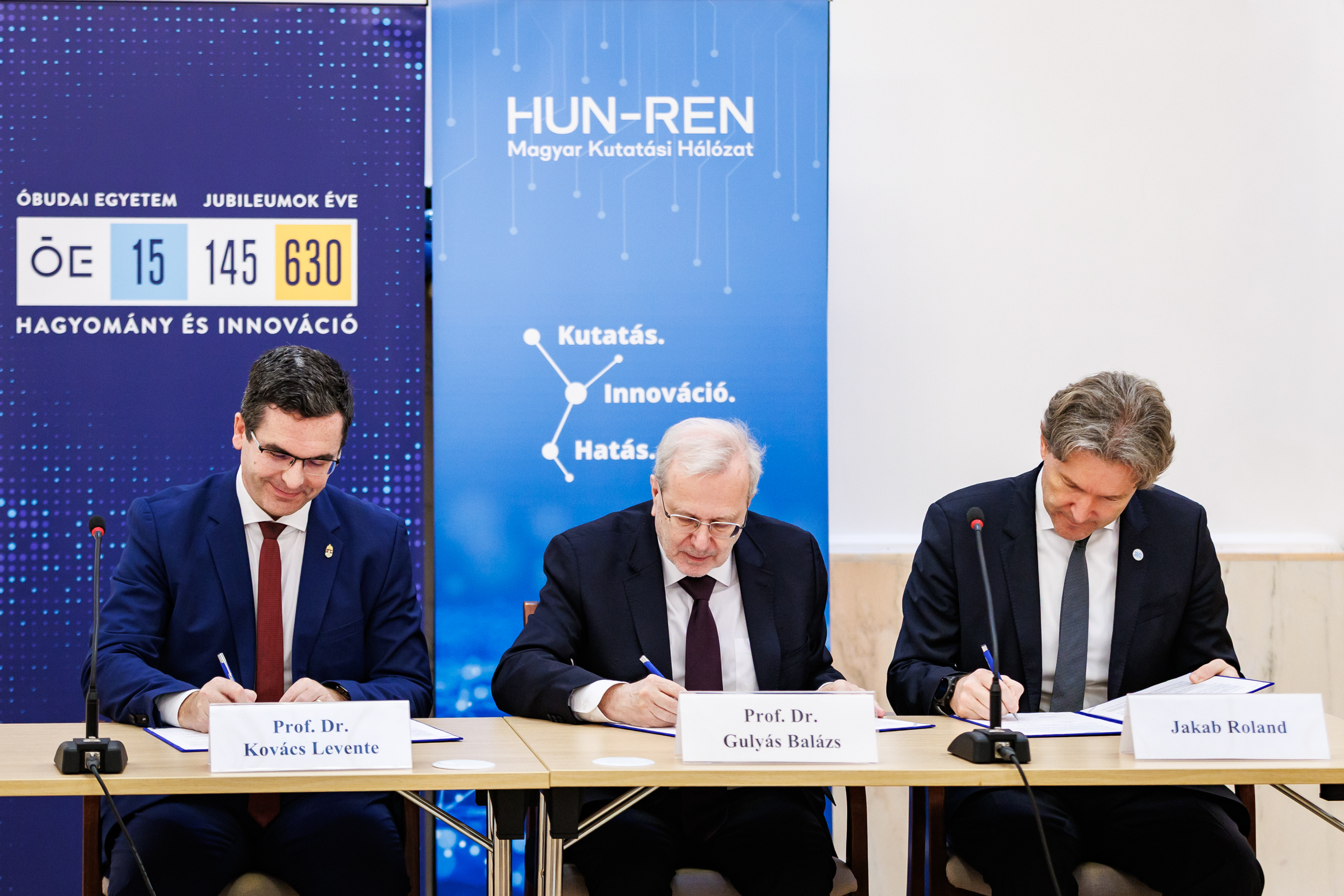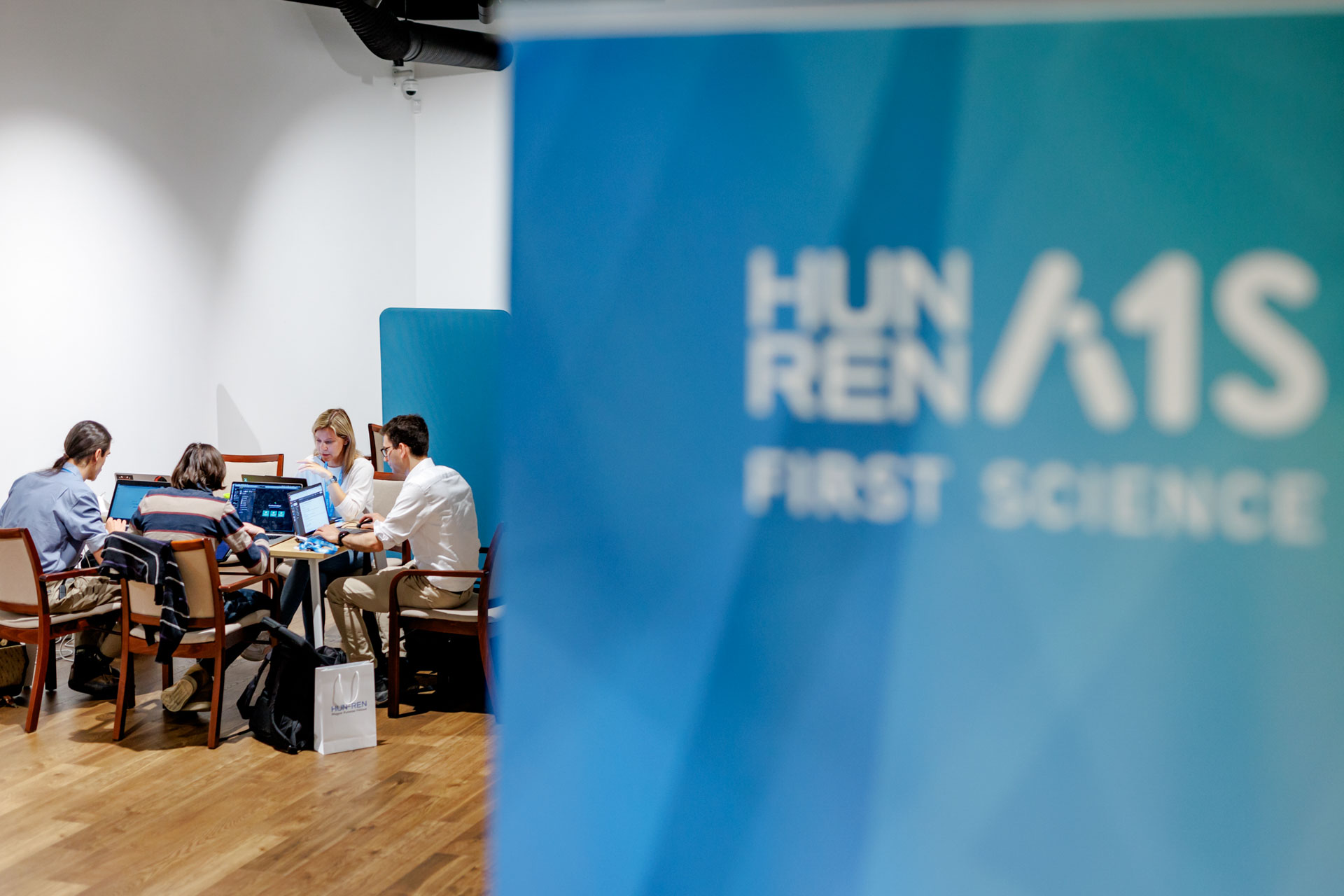Artificial Intelligence Assisting Science
HUN-REN's AI 4 Science program was launched this autumn, offering members of the research network access to cutting-edge AI services and the support of dedicated AI experts to help them identify and utilize the most suitable AI-based solutions. We spoke with Roland Jakab, CEO of HUN-REN, about this pioneering initiative and the role of AI in Hungary's scientific landscape.

The AI 4 Science program was launched in the autumn. What are the initial experiences? How have researchers responded to this new service?
The reception has been overwhelmingly positive. We began the program by surveying researchers' needs and opinions on AI, and the results were telling – 30% of respondents believed AI could significantly boost research efficiency, while 20% thought it would open entirely new research avenues and methodologies. Since the program's launch in September, we've seen remarkable interest, with many researchers eager to leverage available tools or seek deeper technical support for integrating AI into their projects.
Almost 30 AI ambassadors support researchers in the AI 4 Science program. What is their role, and what are the most frequently asked questions?
Our AI ambassadors play two critical roles: inspiring and supporting researchers. On one hand, they inspire their colleagues by conducting training sessions, talks, and workshops, demonstrating how AI can be utilized across different research stages. On the other hand, they provide practical guidance to researchers who want to use AI but are unsure which tools or methodologies best suit their needs. By participating in workshops and project discussions, ambassadors deliver tailored solutions to meet the specific requirements of institutions, fostering creativity and knowledge exchange within the network.
Are there any early results from the program? Have international practices been adapted to meet local needs?
Although the program has only been running for three months, the progress is promising. Over 20% of our network has participated in face-to-face AI training, 10% have attended AI workshops tailored to scientific research, and the central AI support team, along with the ambassador network, has already assisted with over 100 research projects. These achievements are remarkable. While we’ve drawn valuable insights from international best practices, we’ve also adapted these to fit Hungary’s unique research landscape. It’s encouraging to see our program gaining recognition, with several university partnerships established and growing interest as a model for international best practices.
What feedback have you received from researchers so far? Do you have specific metrics or targets for AI adoption within a certain timeframe, such as a percentage of research projects using AI in the next two years?
A common question from researchers is, "Is this really free? Don’t we need to apply for it?" This reflects the program’s accessibility and the value it offers. Our aim is to maintain a centrally coordinated program while tailoring it to the specific needs of individual institutions. We want to empower researchers to integrate AI into their work—not as an end in itself but as an essential tool to advance their studies. That said, there’s growing interest in research that delves into the mechanics of AI itself or explores how AI is fundamentally transforming scientific methodologies. At the current pace, we estimate that within two years, nearly every research project will meaningfully incorporate AI-based tools.
What breakthroughs and developments can we expect at HUN-REN in 2025 in terms of AI for research and organizational innovation?
We plan to expand the AI 4 Science program to streamline administrative tasks, such as proposal preparation and procurement, which often distract researchers from their core work. Additionally, we aim to foster innovation, from research to commercialization. A key focus will also be on areas requiring a paradigm shift in scientific approaches due to the transformative capabilities of AI tools.
You’ve attended numerous AI-themed events both domestically and internationally this year. How does the state of AI research and development in Hungary compare globally?
AI's role in science is a hot topic globally, as evidenced by this year’s Nobel Prize acknowledgment. Hungary has a solid foundation, particularly in mathematics, and we’re home to several world-class AI-driven biological research projects, including efforts to find a cure for cancer. At HUN-REN, our priority is building synergies across institutions, fostering unified data use, and advancing machine-assisted analysis and interpretation. These steps will enhance and expedite our researchers’ work, enabling them to tackle major challenges with unprecedented speed and precision.
At a national and network level, which scientific disciplines are the most active users of AI, and which could benefit more?
AI's applications are incredibly diverse, making it hard to pinpoint a single leading discipline. That said, life sciences stand out as major beneficiaries, with AI enabling automated tissue analysis and other advances. The social sciences are also leveraging AI for large-scale data analysis. Meanwhile, reasoning models released this year could pave the way for entirely new collaborative methodologies, an area we’re eager to explore.
In addition to your role at HUN-REN, you chair the Artificial Intelligence Coalition. What AI tools do you use in your work or daily life?
I use a variety of AI tools to refine my writing, facilitate collaborative thinking, summarize news, and review documents. They’re incredibly helpful, but like any technology, they require a good understanding to use effectively and avoid potential pitfalls.

